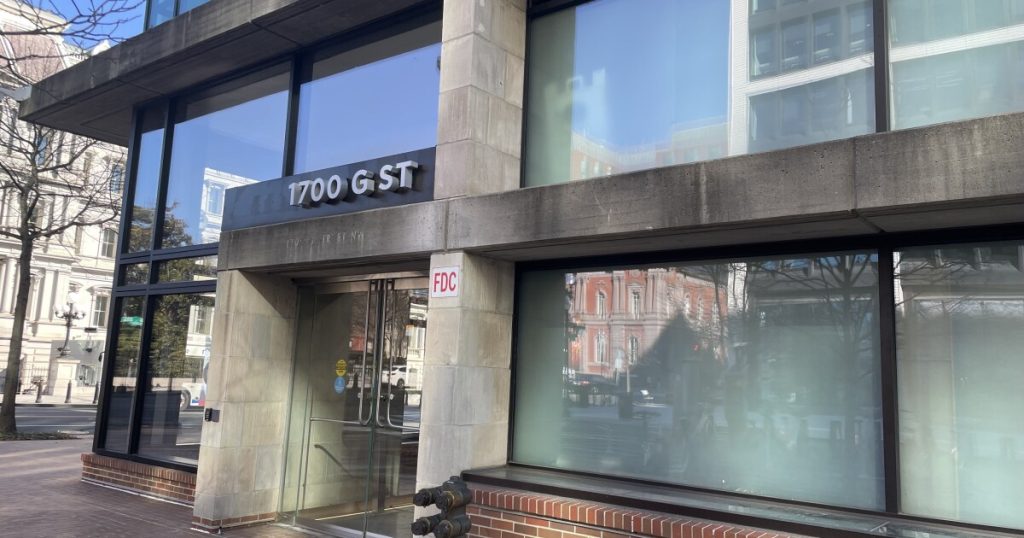- Key Insight: The CFPB still exists and mass layoffs have not yet occurred but the Trump administration has dropped enforcement actions and eliminated rules, nullifying the agency’s broad reach.
- Expert Quote: “The last eight months or so have been unlike any others with just a completely different tenor, completely different levels of activity and a lot of uncertainty,” said Jonathan Kolodziej, a partner at the law firm Bradley Arant Boult Cummings LLP.
- Forward Look: Most of the agency’s staff are being paid not to work but there are still open positions being filled by Trump loyalists. A court battle with the National Treasury Employees Union is likely to be decided by the Supreme Court.
The Trump administration has effectively neutralized the Consumer Financial Protection Bureau, but it hasn’t eliminated the bureau entirely.
For the past eight months, the CFPB has been subjected to a near-daily onslaught of
The pullback of supervisory or enforcement work happened in early February, first under Treasury Secretary
As the architect of Project 2025, the Republican blueprint for changing the federal government, Vought has been the driving force behind nullifying the bureau during the second Trump administration. He
The blow-by-blow of the CFPB’s dismantling began immediately after Vought took over the bureau on Feb. 6 and
“The last eight months or so have been unlike any others with just a completely different tenor, completely different levels of activity and a lot of uncertainty,” said Jonathan Kolodziej, a partner at the law firm Bradley Arant Boult Cummings.
Kolodziej described the timeline of the CFPB’s actions, in which Vought ordered “a comprehensive pause,” of the bureau’s work.
The timeline of a diminished agency
On Feb. 9th, Vought closed the bureau’s headquarters in Washington D.C., locking out the CFPB’s 1,750 employees. He was
Currently, almost
“I haven’t seen or heard much in the way of supervisory exams or new enforcement investigations since the administration changed hands in February,” said Chris Willis, a partner at the law firm Troutman Pepper Locke. “Vought has been effective at neutralizing the agency.”
Still, in order to reverse existing rules — and to effectuate the Trump administration’s broader policy of deregulation — the bureau still needs some staff to perform legally-required work.
“They actually have to have some folks there in the CFPB, [because] there are a lot of regulations over the last decade that they can easily look at and get rid of,” Kolodziej said, referring to Covid-era mortgage servicing rules that have been rescinded. “Everything since then has been in flux.”
The
The union’s lawsuit, which is ongoing, claimed that the CFPB wouldn’t be able to fulfill all of its statutory obligations if Vought proceeded on the path of firing employees.
The union had alleged that Vought planned a mass reduction in force, or RIF, on February 14, and the NTEU
“No statute authorizes the defendants to stop the CFPB from doing what Congress said it must, and they have offered no reasoned explanation for their extraordinary efforts to wind down the agency,” the NTEU Local 335 has said.
But last month, Vought won
Less enforcement
The rescinding of regulations and dropping of enforcement actions also began in February when Chief Legal Office Mark Paoletta started dismissing lawsuits that had been filed by Chopra. From
Because the CFPB was created by Sen. Elizabeth Warren, D-Mass., the ranking member of the Senate Banking Committee, (before she was a senator), the agency’s employees have long been considered to be progressive Democrats. Under the second Trump administration, Vought has issued several reductions-in-force, or RIF notices, including mass firings of temporary workers and those
In April, Vought and Paoletta sent out a memo listing the CFPB’s 11 priorities, which specifically said that the agency would shift its resources away from enforcement and supervision that can be done by the states, according to the memo posted
The CFPB also said that it would no longer publicly disclose consumer complaint narratives or certain credit card complaint data.
There have been a large number of piecemeal rulemaking actions taken by Vought and courts. Vought has refused to enforce the
The bill that caused the biggest blow
Many experts agree that perhaps the single biggest blow to the CFPB came in July when Congress passed and the president signed a
The bill created a new method for controlling the funding of the CFPB by capping the amount of money that the bureau can receive from the Federal Reserve’s operating budget at 6.5% — down from 12% previously. With the CFPB’s budget this year capped at $446 million, down from $785.4 million in maximum funding last year, the bureau’s employees are bracing for a new round of layoffs.
Many experts acknowledge that while the CFPB currently is not functioning as a normal regulator, it has not been eliminated.
“I do think it will be hard to get back to where the CFPB was because they permanently cut the CFPB funding in half,” Kolodziej said.
He argues that Congress needs to write statutes with more far specific instructions on how an agency regulates.
“If the CFPB needs to conduct 400 exams a year, then we need a statute that says that because right now, all the statute says is that the CFPB shall require reports and conduct examinations on a periodic basis, and that’s absolutely subject to debate and interpretation.”

